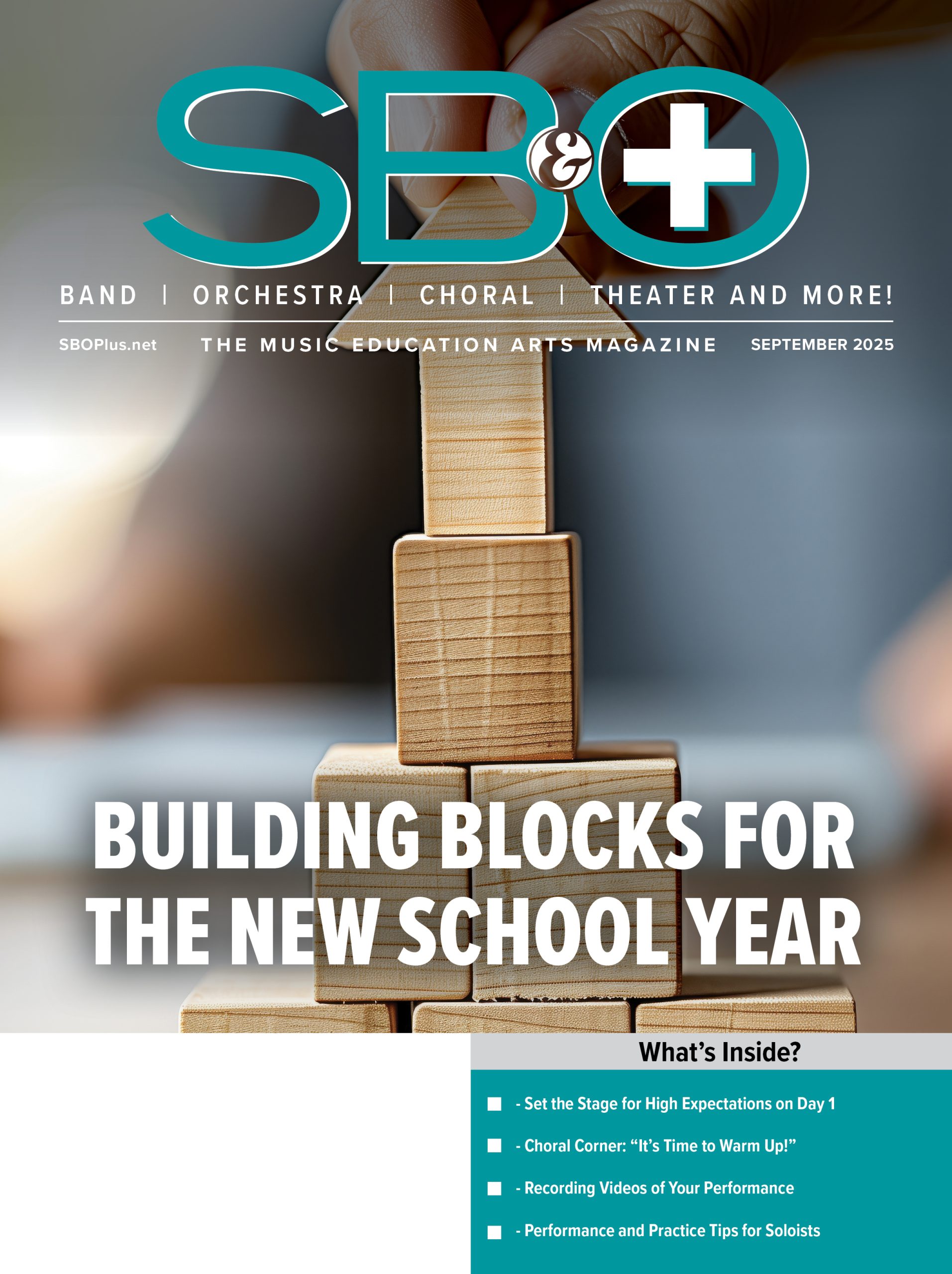 Many years ago, I attended a National Band Association conference at Northwestern University. One of the clinicians from a major university wind ensemble program spoke about score study.
Many years ago, I attended a National Band Association conference at Northwestern University. One of the clinicians from a major university wind ensemble program spoke about score study.
He said, “I would never step onto a podium until I had done a complete harmonic and formal analysis of the score, played it on a piano, sight-sung every part, and had the entire score memorized.” At the time, I was a junior officer at The United States Army Band “Pershing’s Own” and was struggling to become a conductor somewhat worthy of those fabulous musicians. The amount of music I had to learn and conduct weekly was staggering and I was completely discouraged by the herculean task of prepping all of it to the standard that the clinician had described.
As I was leaving the parking lot, I was flagged down by someone asking for a ride to the hotel. It was Francis McBeth! He asked me what I thought of the clinic and I confessed I was contemplating a new profession because I could not meet that standard. He chuckled and said, “Before I conduct something, I like to know what the time signature is…. and that’s for stuff I wrote!” That led me to consider that there are a number of ways to prepare to conduct as well as various ways to prepare to teach a piece of music.
I have heard many clinicians describe their approach as “Macro to Micro to Macro.” Start big picture, keep drilling down to the smallest elements, and then expand your view back out. I find this flawed because it implies there is an end state where “Micro” has been achieved and it also assumes that there is always adequate director time to get to Micro and then expand back out. For most of us who are juggling multiple ensembles, remote and in-person learning, and heavy administrative loads, I prefer to think of it as “Macro to ???” To explain further, start big and continually add more detail, and as you do so, your “big picture” vision should develop and grow richer. There really is no end state; can anyone truly say they have “mastered” a piece of music? A few years ago, I was set to conduct the Holst First Suite for the umpteenth time but as I started my prep, I saw a musical line I had never heard or seen before! How deep you go depends solely on the time available to you. If all you can get to before a performance is the “landmarks” and the mechanics of tempo and meter changes, then that is reality. But don’t cheat yourself and your students by not getting more “micro” before the next performance.
By starting big, I mean “what’s the title?” Composers and publishers put a lot of thought into the titles and it’s amazing how many directors will go straight to the first measure without considering the title. Before getting too far into this, I highly recommend Gary Stith’s book, Score and Rehearsal Preparation: A Realistic Approach for Instrumental Conductors. It lays out a step-by-step “Macro to ???” approach. It’s concise, to the point, and has great checklists.
Many composers provide detailed notes about the meaning of the piece and even how to teach it. Philip Sparke, Brian Balmages, Frank Ticheli, and Loras Schissel are among the best but there are lots of others. Read these notes!
Here are some of the questions I want to find answers to as I go from big to small:
• Start big (what’s the title?) and narrow it down each time (inverted pyramid)
• What’s the composer trying to say?
• What’s the big form? (Fast, slow, fast?)
• Where are the peaks and valleys?
What are the tempo relationships? This is especially important if your students cannot play a section at the recommended tempo. If that’s the case, you should consider adjusting the tempos of the other sections to maintain the overall architecture.
Here are my basic approaches to score study: Visit a piece often but for short periods. Frequent, short, focused sessions are better than fewer long sessions. Educational research has proven that “interleaving” is more effective than a long cram session. Instead of spending 10 minutes checking social media during a break, spend 10 focused minutes on part of a piece of music.
Use a variety of approaches and rotate them. Here are some examples:
• Just look at the score without conducting or thinking of gestures. Look for things you might have missed on earlier readings and look for likely performance problems
• Conducting through it both with and without recordings. This is what many do almost exclusively, and while it’s useful, you don’t really learn much new about the score by doing this every day
• Play through lines on a keyboard or on your instrument (or practice your sight singing!)
• Conducting it from memory both with and without recordings.
• Listen to and compare several recordings. What do you think is good or not so good about each of them?
• Read about the piece and/or the composer (and talk to them!)
Many directors are afraid to give guidance about phrasing and shaping because they aren’t sure of the “right” answer. Before you were a conductor, you were a musician! Trust your musicianship and answer any questions as if you were the player.
Once you know the form and “where things are going,” most phrasing and shaping questions will answer themselves. Phrasing and shaping are ways of propelling you to your destination.
• Does the note begin a statement (sentence)? Does the phrase begin a section (paragraph)?
• Does the note end a statement (sentence)? Does the phrase end a section (paragraph)?
• Is it supposed to push the music forward or pull it back?
• What else is going on? If it’s a note that “has a hole in the middle” (half note or longer) is there movement going on in another voice while it’s sustaining? In other words, if a phrase or note is in repose, is there some underlying movement to be revealed?
• Many people mark their scores so extensively they really can’t see the music. I don’t mark them very much because I think many markings are distracting.
• No colors and no ink, keep it light; think of your successor unless it is a score that you personally purchased
• Develop your own code (Pic, Fl, Ob, EH, Fg, Cl, BC, AS, TS, BS, Tpt, Hn, Pn, EU, TB is what I use) and be consistent
• As you learn it better, erase the markings
• Indicate FG, MG, BG, and LV for passages where you think the focus will need sharpening
• Don’t overuse the top line. Doing so will cause you to not see the rest of the score, especially the percussion!
One of the best conducting teachers I ever had told me that if knew how to teach the music, then I had effective knowledge of the score. In our lessons, he would open a random page and then start counting to ten. Before my ten seconds were up, I had to tell him what the performance problem would be on that page and how I was going to fix it. For school instrumental conductors, that is (in my opinion) more useful than some types of score analysis we’ve been taught to do.
In November, we will observe Veteran’s Day and I will share some thoughts on conducting our national march, “The Stars and Stripes Forever.” What would you like to see in future columns? Contact me through ThomasPalmatier.com with your ideas.
























